Pictures

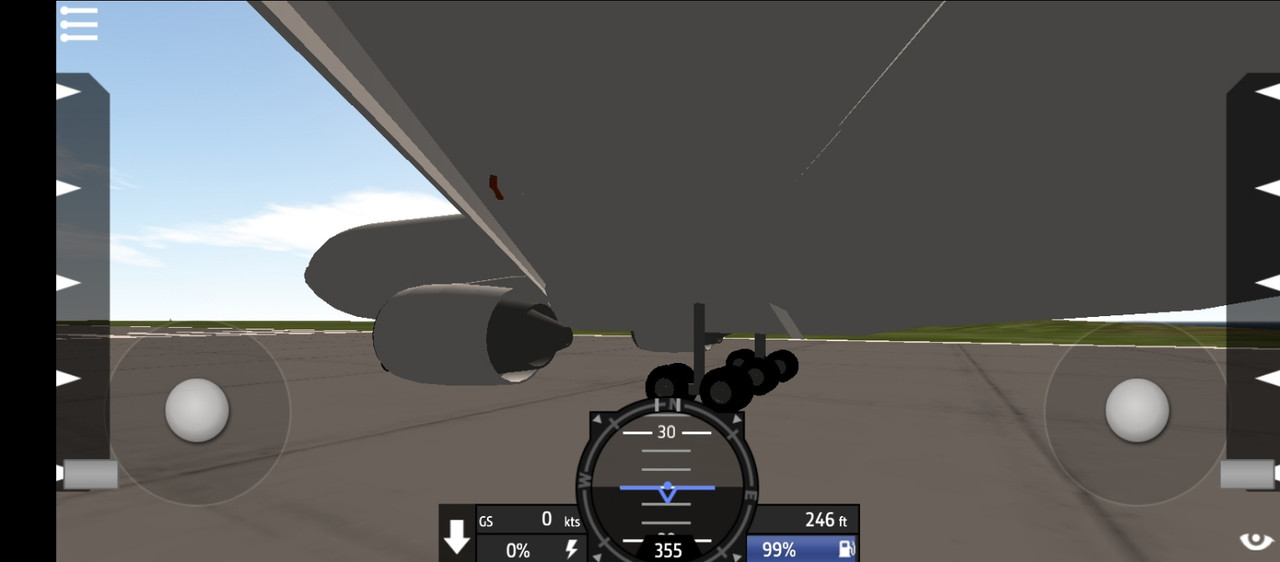

Info:
Takeoff speed: 120~130 kts (with half flaps)
Landing speed: 119~126 kts
Max Cruise speed: ±356 kts (ingame)
Max cruise alt: 35,000~39,000ft
Controls
VTOL Down - Flaps and Slats
Brake - Airspoilers and Wheel brakes
Trim - Trim
Normal controls
Action groups
Ag1 - Reverse Thrust
Ag2 - Nav lights
Ag3 - Landing Lights
Ag4 - Taxi Lights
Ag5 - Beacon lights
Ag6 - Logo lights
Ag7 - nothing
Ag8 - nothing
Features:
1.Working Slats
2.Working Airbrakes/Spoilers
3.Working Nav. Lights, Landing Lights, Taxi Lights, Beacon Lights, Logo Lights
4.Realistic Trim
From Wiki
The McDonnell Douglas DC-10 is an American tri-jet wide-body airliner manufactured by McDonnell Douglas. The DC-10 was intended to succeed the DC-8 for long-range flights. It first flew on August 29, 1970; it was introduced on August 5, 1971, by American Airlines.
The trijet has two turbofans on underwing pylons and a third one at the base of the vertical stabilizer. The twin aisle layout has a typical seating for 270 in two classes. The initial DC-10-10 had a 3,500 nmi (6,500 km) range for transcontinental flights. The DC-10-15 had more powerful engines for hot and high airports. The DC-10-30 and -40 models (with a third main landing gear leg to support higher weights) each had intercontinental ranges of up to 5,200 nmi (9,600 km). The KC-10 Extender (based on the DC-10-30) is a U.S. Air Force tanker.
A design flaw in the cargo doors caused a poor safety record in early operations. Following the American Airlines Flight 191 crash (the deadliest US aviation accident), the US Federal Aviation Administration (FAA) grounded all U.S. DC-10s in June 1979. In August 1983, McDonnell Douglas announced that production would end due to a lack of orders, as it had a widespread public apprehension after the 1979 crash and a poor fuel economy reputation.[2] Design flaws were rectified and fleet hours increased, for a safety record later comparable to similar era passenger jets.
Production ended in 1989, with 386 delivered to airlines along with 60 KC-10 tanker aircraft. The DC-10 outsold the similar Lockheed L-1011 TriStar. It was succeeded by the lengthened, heavier McDonnell Douglas MD-11. After merging with McDonnell Douglas in 1997, Boeing upgraded many in-service DC-10s as the MD-10 with a glass cockpit to eliminate the flight engineer position. In February 2014, the DC-10 made its last commercial passenger flight. Cargo airlines continue to operate it as a freighter, its largest operator is FedEx Express. The Orbis Flying Eye Hospital is a DC-10 adapted for eye surgery. A few DC-10s have been converted for aerial firefighting use. Some DC-10s are on display, while other retired aircraft are in storage.
Enjoy Flying!
Specifications
General Characteristics
- Successors 1 airplane(s) +7 bonus
- Created On Android
- Wingspan 105.0ft (32.0m)
- Length 119.1ft (36.3m)
- Height 40.0ft (12.2m)
- Empty Weight 36,882lbs (16,729kg)
- Loaded Weight 69,674lbs (31,603kg)
Performance
- Power/Weight Ratio 4.838
- Wing Loading 23.7lbs/ft2 (115.9kg/m2)
- Wing Area 2,936.2ft2 (272.8m2)
- Drag Points 43460
Parts
- Number of Parts 393
- Control Surfaces 10
- Performance Cost 1,912

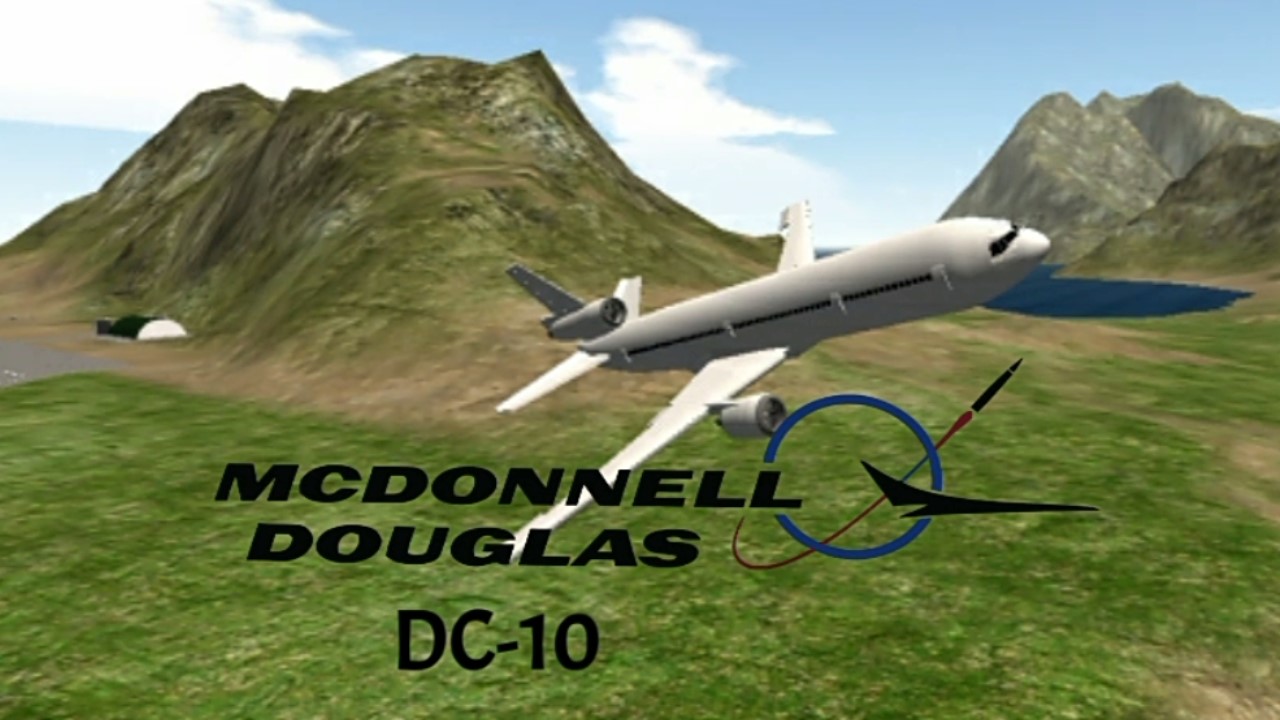
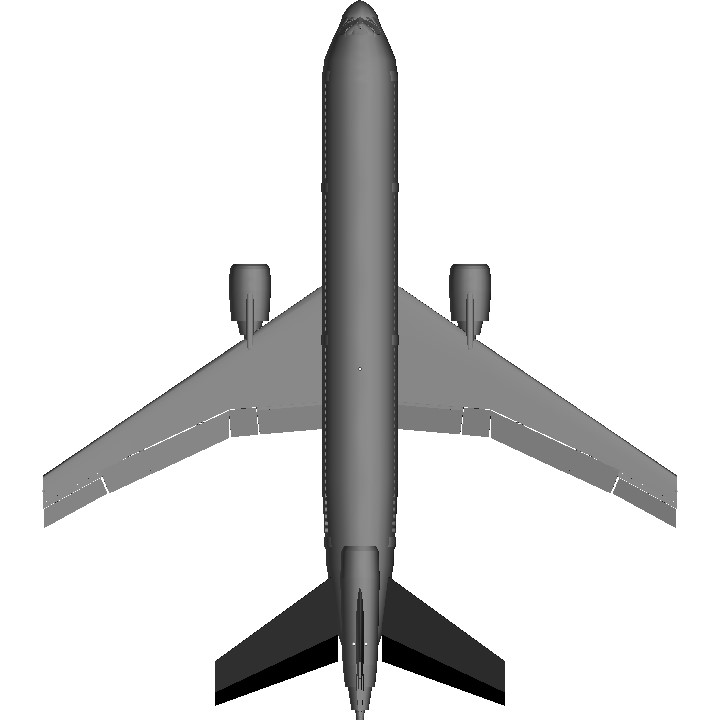
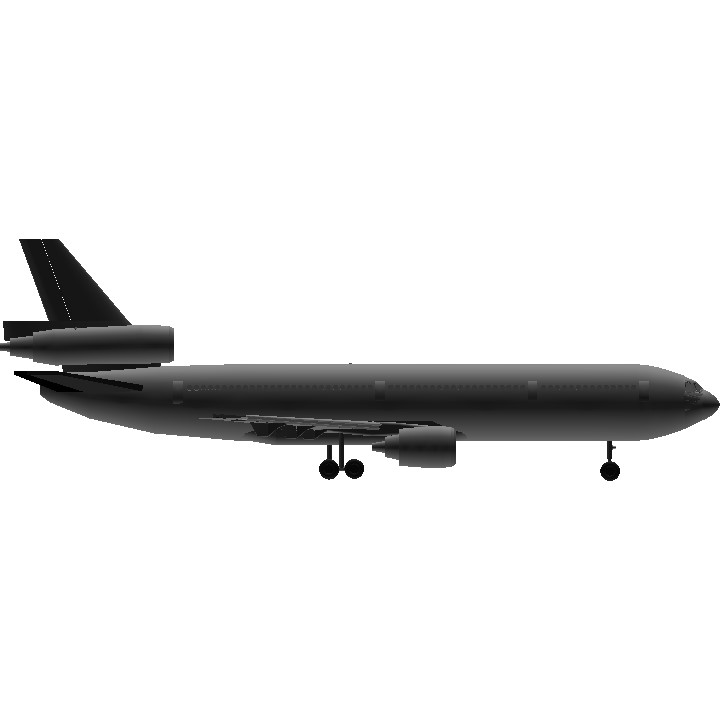
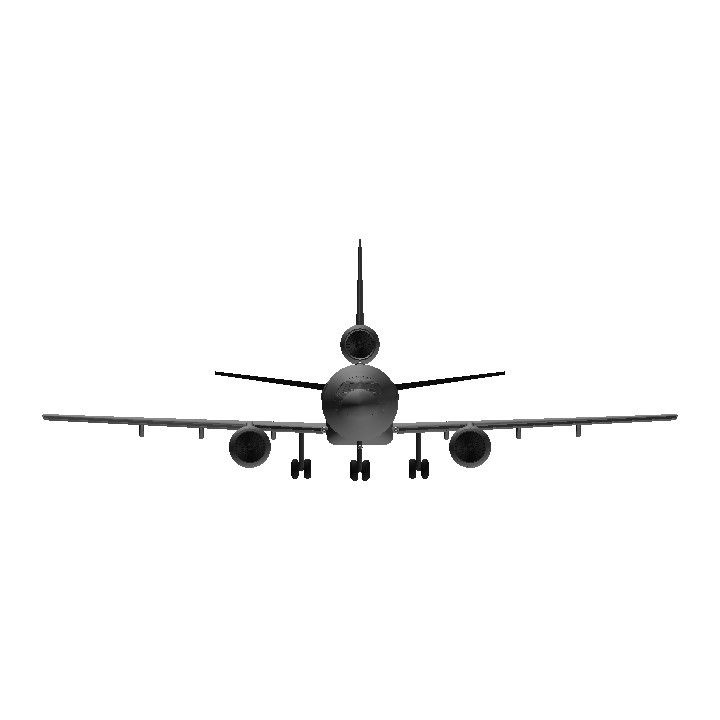
Sorry for the low quality thumbnail
@Theplaneexpert10
@10 bruh
what in gods name is that thumbnail
@Loveflying it is done but i could not post it because i posted the max number of aircraft in 24 hours. It will be out soon.
@GuianLorenzo ohhh thank you veryyyy muchh 🙏🙏🙏🙏🙏
@Loveflying your request for a Atlialia livery is almost done
I think you should have limited the front slat, I know your not supposed to go up with vtol but I did and it just phases through the wing. Other than that it's a nice plane!
@GuianLorenzo thank you so much 🙏🙏
@GuianLorenzo np
@tsampoy thanks
Nice
@tsampoy
@Loveflying i will try on my free time
Veryyy nice kindly if you could add Alitalia livery on it , it will look brilliant 😍😍😍
@BassemT90 thanks
Looks amazing 🤩🤩🤩
@BassemT90
@Loveflying
@Ergithe